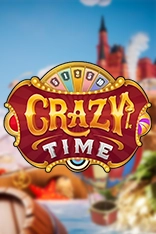
How AI Is Changing The Gambling Industry
User Review
( vote)As gambling moves towards a more automated player experience, artificial intelligence is starting to play a more significant role in the development of the industry as a whole. Indeed, AI’s influence can be seen in every sector, from game development to player monitoring.
One of the key opinion leaders in this area is Paolo Personeni, the Managing Director of betting services at Sportradar. In an article provided by igamingbusiness online, he said that “our industry has undergone a significant digital transformation in the past five years, and artificial intelligence has been critical in its evolution”.
This may be because the gambling industry is one of the most ideally suited to AI, as it involves crunching huge amounts of data generated from players’ experiences. These data points are then used to inform how games and players will perform in the future.
Lloyd Danzig, founder and managing partner at Sharp Alpha Advisors, adds, “the gambling industry relies heavily on the leveraging of historical data to anticipate future outcomes and behaviours”, continuing by saying, “this is a core competency required for game design, oddsmaking, risk management, customer profiling, rewards programme optimisation and fraud detection.”
AI is particularly helpful in the context of sports betting, according to Personeni, as it can make sure its products and solutions are as accurate as possible. Personnel said, “for Sportradar, one of our core focus areas is on utilising machine and deep learning to develop exceptional computer vision capabilities, which is a form of artificial intelligence that teaches models to interpret and understand videos and images”.
He adds, “while we, as individuals, are very good at understanding what is happening in front of us at sporting events, we have limited capacity in the amount of data we can manually interpret, record digitally and upload.”
This leads to predictions that a human could never make. Personeni explains by saying, “for example, by calculating velocities and trajectories of players, AI can predict when players will go offside or predict when an attack is mounting in football.”
Not only can AI help to make odds and predictions more accurate and improve the gambler’s experience, but it can also help safeguard players by analysing players’ level of engagement.
Leigh Nissim, CEO of Future Anthem, sees AI as a road to reducing problem gambling. However, he adds that the extensive types of technology make data collection challenging, which could stifle the full effectiveness of AI.
He said that “in responsible gambling, there are quite traditional practices of how to prevent player risk,” adding, “you’re modelling on other players who have cancelled and self-excluded. As consumers move to other tools, such as open banking and other ways of depositing, it’s increasingly hard to see how they are depositing. That data set is quite challenging.”
However, he does add that “commercial AI tools are extremely capable in cases that rely on pattern recognition across large data sets”, continuing by saying that “these capabilities allow for the efficient analysis of historical user behaviour and engagement to determine how to maximise the experience for a particular user or when to flag behaviour as being potentially harmful.”
However, it is not just in the digital world that AI can make a difference in betting. Land-based platforms can also benefit. According to AI cloud service DataRobot, AI can be implemented on casino floors. The service can be used to predict the level of play that could occur on the casino floor and adjust staffing levels to match.
Implementing AI strategies and solutions, especially with land-based casinos, however, needs to be done with care. Lloyd Danzig explains saying, “when businesses first embark on the journey to integrate AI solutions, they often find that the process will be much more costly and resource-intensive than originally expected,” continuing by saying “in part, this is due to a misconception that AI is a one-size-fits-all panacea that immediately improves efficiency and profitability.”
Indeed, organisations must be considered and highly specific with what they want from AI and assess the long-term implications of introducing it into their systems.
According to Danzig: “Once implemented, a primary downside to relying on AI solutions is that they can often exhibit unexpected behaviours that result in quickly compounding issues given the speed and scale with which they are deployed,” he continues by saying, “AI solutions are only as good as the quality of the data being used as inputs, hence the phrase ‘garbage in, garbage out.”
Another concern when approaching introducing AI is the staffing side of things and the perpetual paranoia of job losses. Leigh Nissim however, believes that AI should not threaten jobs, saying that “I think what it should threaten are manual processes… And actually, that’s where you find mistakes arise.”
This, he says, will lead to a growth in opportunities and employment rather than a constriction of roles.
He continues by saying, “maybe manual processes will reduce, but what you’ll see is technical upweighting. There will be more data scientists, more data engineers, more technicians and more analysis – “it’s not about job threats at all. The focus should be betterment and improvement – delivering innovation to provide an improved experience for the player and to help protect operators.”
Danzig is of the same opinion, stating that “while it is possible that some jobs in the gambling industry will be lost to automation, AI solutions today rely heavily on human input and maintenance”.
He says that “in the next five years, the implementation of AI and machine learning tools across the gambling industry will create a significant number of new jobs and also enable stakeholders to refocus efforts toward more productive, and ultimately job-producing, functions.”
Where AI will take the gambling industry in the future is difficult to predict. However, if the last five years are anything to go by, there will be a lot of change. Let’s just hope humans can keep up with what it can offer.
























